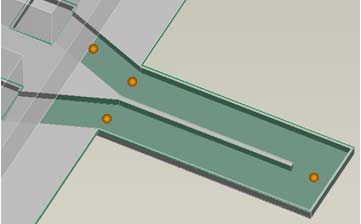Scientists Can Now Weigh Living Cells

Get the world’s most fascinating discoveries delivered straight to your inbox.
You are now subscribed
Your newsletter sign-up was successful
Want to add more newsletters?

Delivered Daily
Daily Newsletter
Sign up for the latest discoveries, groundbreaking research and fascinating breakthroughs that impact you and the wider world direct to your inbox.

Once a week
Life's Little Mysteries
Feed your curiosity with an exclusive mystery every week, solved with science and delivered direct to your inbox before it's seen anywhere else.

Once a week
How It Works
Sign up to our free science & technology newsletter for your weekly fix of fascinating articles, quick quizzes, amazing images, and more

Delivered daily
Space.com Newsletter
Breaking space news, the latest updates on rocket launches, skywatching events and more!

Once a month
Watch This Space
Sign up to our monthly entertainment newsletter to keep up with all our coverage of the latest sci-fi and space movies, tv shows, games and books.

Once a week
Night Sky This Week
Discover this week's must-see night sky events, moon phases, and stunning astrophotos. Sign up for our skywatching newsletter and explore the universe with us!
Join the club
Get full access to premium articles, exclusive features and a growing list of member rewards.
With a tiny, high-tech scale, researchers can now weigh living bacteria and immune cells for the first time.
In traditional methods of weighing, molecules are placed on top of a tiny silicon slab inside a vacuum.
The slab vibrates at its natural frequency until the molecule is placed on top, when the frequency changes slightly. The mass of the molecule can be calculated by measuring the change.
But living cells cannot survive in a vacuum and must be measured in a fluid, which would interfere with the measurement if it surrounded the slab.
A group of MIT scientists solved this problem by pumping the fluid containing the sample of cells through a microchannel inside the slab.
The scale can now measure living cells and nanoparticles down to a femtogram, or about the weight of an E. coli bacterium.
The technique could help researchers develop inexpensive, portable diagnostic devices that could help health workers in developing countries; for example, a device could be created to count CD4 immune cells in AIDS patients, which would tell how far the disease has progressed.
Get the world’s most fascinating discoveries delivered straight to your inbox.
“A cheap, simple CD4 counting device that can be used by a community health worker would be a breakthrough advance in global health,” said William Rodriguez, an AIDS researcher at Massachusetts General Hospital who was not affiliated with the research.
- Top 10 Mysterious Diseases
- Scientists Create Tiniest-Ever Alphabet Soup
- All About Nanotechnology
 Live Science Plus
Live Science Plus











